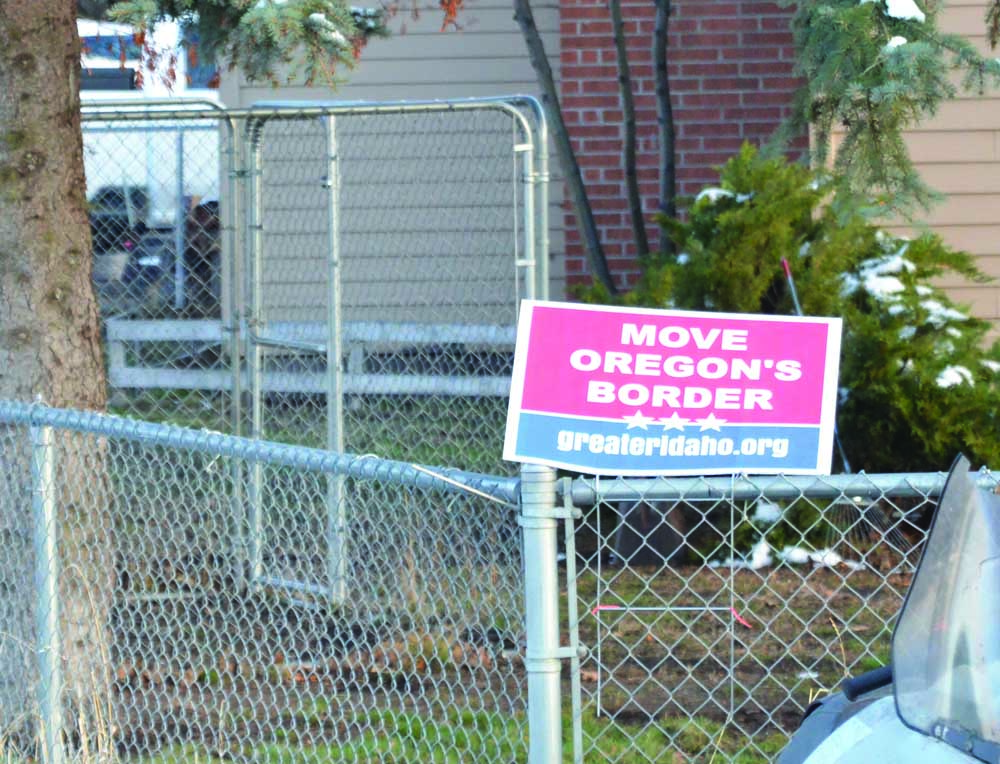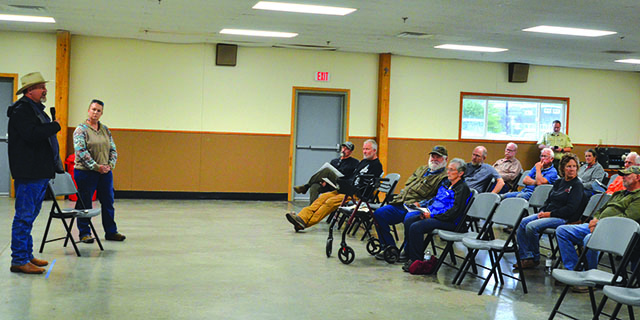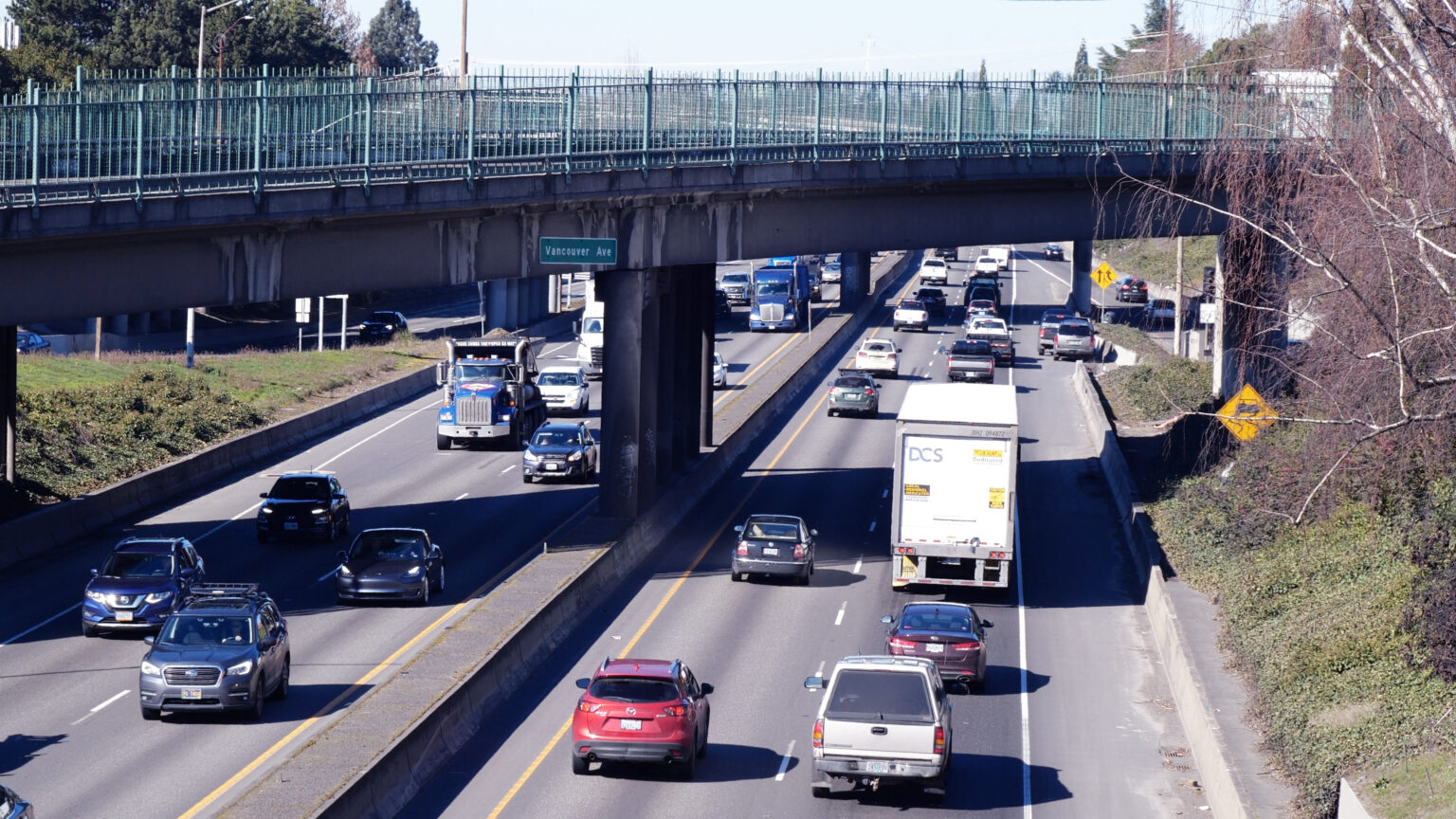Neighboring counties reflect on border move
Published 2:45 pm Monday, May 1, 2023

- Signs reflecting property owners’ dissatisfaction with the government in Salem such as this one in Lostine urge approval in the Tuesday, May 16 election of a measure directing the county commissioners to consider Wallowa County’s best interests in moving the state line so the county becomes part of Idaho. The proponents of the border move Friday filed a complaint with the state alleging reporting improprieties on the part of opponents of Ballot Measure 33-007.
WALLOWA COUNTY — When Wallowa County voters fill out their May 16 ballots they’ll be confronted with an issue that is rare in elections: Do they want to remain a part of the state they’ve always been in or move to another?
But that’s not exactly what voters will be asked to decide. They’ll be asked to direct the county Board of Commissioners to consider the county’s best interests in relocating the state border. If the measure passes, the commissioners would be required to meet twice a year to consider the idea.
Trending
According to the pro-move website greateridaho.org, the purpose of this ballot measure is to send a signal to state legislatures in Oregon and Idaho to begin talks to consider the move. It also sends a message of discontent in Eastern Oregon where, the website says, voters are more in line with Idahoans than Western Oregon, and economics and agriculture are more in tune with Idaho than in Oregon.
An actual border move?To actually move the state line takes the approval of the legislatures of both Oregon and Idaho as well as of Congress, so it’s much more complicated than simply moving a sign on the road or a line on a map. The last time a major state border change comparable to the one on the May 16 ballot took place it required a Civil War to make it happen — when western Virginia refused to secede with the Richmond government and became West Virginia in 1863.
Measure 32-007 doesn’t actually ask voters if Wallowa County should become a part of Idaho. Rather, it directs the county commissioners to consider the county’s best interests in making such a border relocation.
In 2020, Wallowa County voted down by less than 1% a similar measure that would have required the commissioners to meet about and discuss the issue three times a year. So far, 11 counties in Eastern Oregon have approved similar measures.
In February, the Idaho House of Representatives passed a bill in favor of the movement. A Senate measure was introduced by Sen. Dennis Linthicum, R-Klamath Falls; the bill was referred to the Senate Committee on Rules and has stalled there. So, both legislatures are a long way from approving a border shift.
Two small border moves — the Oregon-Washington border along the Columbia River and Minnesota-North Dakota border — were accomplished in recent decades with virtually no hostility.
Trending
Neighbors’ thoughts
Ironically, Oregon’s most northeastern county would remain a bit of an island of Oregon if its neighbors in Baker and Union counties moved to Idaho. There would be a slim border with Umatilla County, Oregon, to keep Wallowa County attached to the Beaver State.
But commissioners in counties that have approved measures similar to 32-007 in previous elections say they’re not necessarily in favor of a border move and their constituents are mixed on the measure.
Shane Alderson, chairman of the Baker County Board of Commissioners, believes the border move won’t happen and it is more an expression of dissatisfaction with Salem than anything.
“Everybody is unhappy with Salem,” Alderson said Thursday, April 27. “It’s like our vote has no meaning here. We’re always begging for help here. … We don’t have a chance to help Eastern Oregon.”
He said even some coastal and Southern Oregon counties feel likewise in their dissatisfaction with urban Oregon’s dominance.
Alderson said that in Oregon, there seems to be a war on agriculture and a war on business making the state unfriendly to elements crucial to rural Oregon.
“Idaho says, ‘We don’t do that,’ that’s why Idaho looks more attractive,” he said. “Oregon is a heavily taxed state, as far as I’m concerned.”
Despite Idaho having a 6% sales tax and Oregon none, he said the only way he’d want sales tax is if it meant a reduction in taxes on property and other areas.
“We could be collecting sales taxes (from tourists),” he said.
He also noted that Oregon has a high cost in workers compensation not found in Idaho.
“That’s always been a basic problem,” he said.
Paul Anderes, chairman of the Union County Board of Commissioners, agreed there are many obstacles to overcome if the border was to be moved. One area he hasn’t been able to get clear on is how water rights would work in Oregon counties that moved to Idaho. There’s also the question of Idaho’s taking over Oregon Department of Transportation infrastructure and universities.
“The answer I get is those are just things that need to be negotiated,” Anderes said. “But I wonder what position we have to negotiate from.”
In nearby Grant County, Commissioner Jim Hamsher said the commissioners have had several meetings since the measure passed, the most recent April 5. Constituents who spoke at that meeting were mostly opposed to a border move, with about 10 wearing matching T-shirts that read, “Just Say No to Idaho,” according to the Blue Mountain Eagle, the county’s newspaper. Previous meetings have seen proponents of the border move speak out, the commissioner said.
Another solution?Some say the solution isn’t moving the border but fixing Oregon.
“We’ve had a lot of folks who want stay in Oregon and lot who want to move to Idaho. I’m native Oregonian and I’d hate to have to leave,” Grant County Commissioner John Rowell said. I’d prefer to rewrite the Constitution to have one senator from each county. … I’d hate to have to leave Oregon, but we have to do something.”
Hamsher agreed, saying he doesn’t believe the Democrat-controlled Legislature would be willing to lose seats and thus its supermajority.
“With planning issues, people feel laws are shoved down their throats, so I totally understand where they’re coming from,” he said.
Moving part of Oregon to Idaho might have negative results for those who move. As Alderson said, Idaho, too, is largely controlled by the urban Boise/Nampa/Caldwell metro area. The high cost of housing there and Democrat-controlled voting make Idaho seem less like Idaho, he said. He said he’d prefer to fix Oregon rather than leave it.
“We just need to change the political climate than to join Idaho. I was born and raised in Oregon but it doesn’t seem like my state anymore,” Alderson said.“I think many of the people would feel the same way.”









